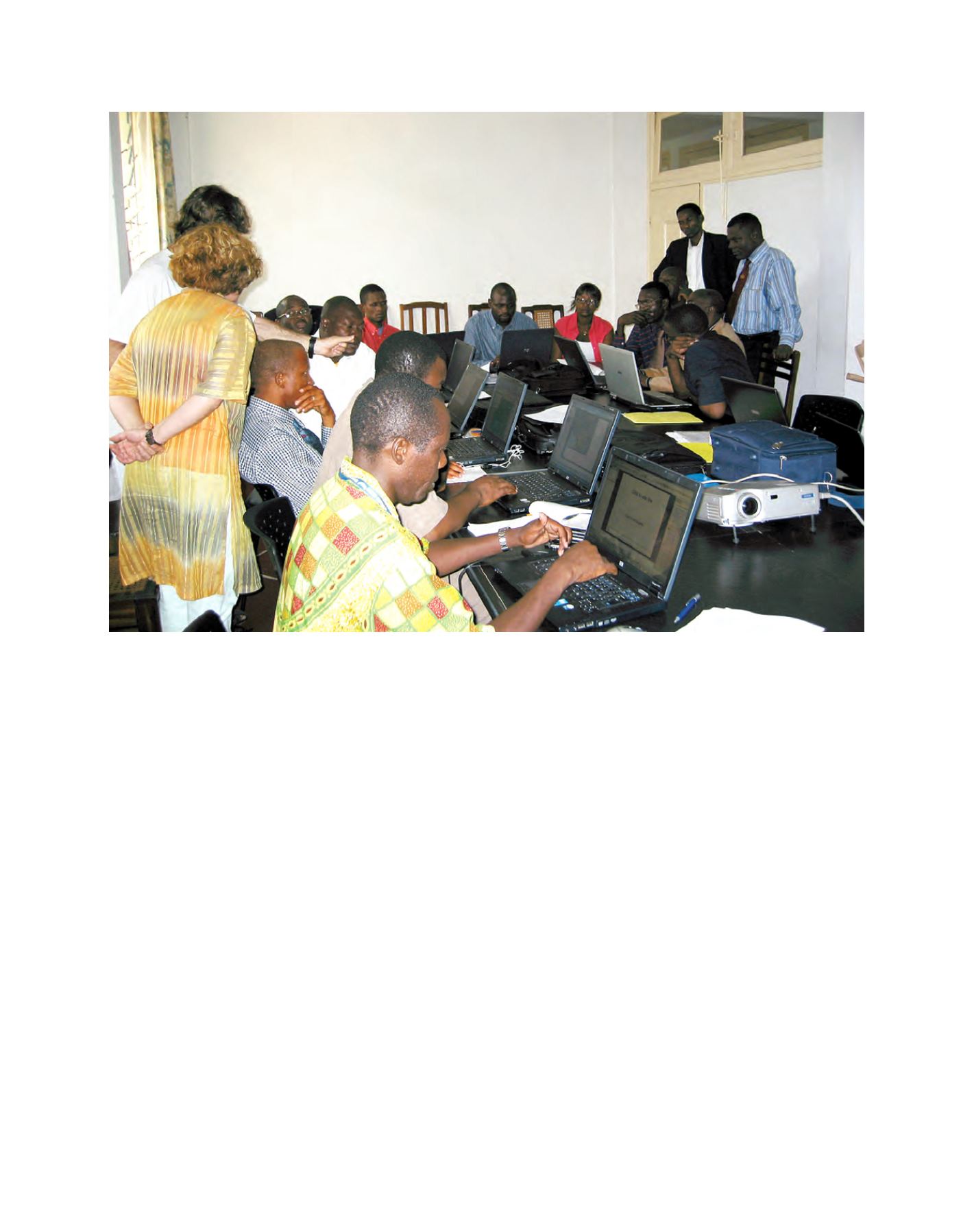

[
] 186
O
bserving
, P
redicting
and
P
rojecting
C
limate
C
onditions
the end, the participants give a brief presentation on their national
results, and an expert collates the results and gives an overview of
the trends and variability in extremes across the whole region. The
benefits of working across national borders are numerous: confi-
dence in local analyses is increased by placing them in a larger,
regional context that includes results from neighbouring stations
and countries; regional research synergies are also enhanced by
sharing insights and improve analyses between neighbouring coun-
tries. A post-workshop follow-up process produces a peer-reviewed
journal article on analysis of climate change for the given region,
and makes available the indices data in the analysis. The workshops
therefore enhance the capacity of countries to extract important
climate change information from their long-term daily data, and
foster regional collaboration in climate analyses.
Between 1998 and 2004, APN sponsored a total of five work-
shops in Melbourne to promote this activity in Southeast Asia
and the South Pacific. At the same time, ETCCDI coordinated
workshops in the Caribbean and Africa. Owing to a number of
difficulties, only parts of the results were available in time to
contribute to the global extreme analysis prepared for the IPCC
Third Assessment Report. A second series of ETCCDI workshops
provided much improved input to the IPCC Fourth Assessment
Report (AR4). Since the release of AR4, new workshops have
also been conduced and planned.
13
ETCCDI indices have been
released and are available at
http://cccma.seos.uvic.ca/etccdi;they
have already been of great use to scientists working on
adaptation and climate model validation. The National
Oceanic and Atmospheric Administration’s National
Climate Data Center and the Climate Research
Division of Environment Canada are jointly develop-
ing a variant of the ETCCDI index set as a basis for the
North American Climate Extreme Monitor.
Effective adaptation to the changing climate requires
not only more and better information about future
changes in climate from improved climate models, but
also better information about past climate change and
current climate. To address this need, ETCCDI has coor-
dinated the formulation of a suite of climate indices that
describe different aspects of moderate temperature and
precipitation extremes including frequency, intensity and
duration. Environment Canada has also developed open
source software for the calculation indices and for climate
data homogenization, and has made this software freely
available. These tools – together with a series of ETCCDI
coordinated regional capacity building workshops
14
– have played and will continue to play an important
role in monitoring changes in extremes, climate model
evaluation and assessment of future climate. These proc-
esses, in turn, provide the vital climate information that
is required for climate change adaptation.
Participants from nine countries improving their capacity to process climate change data and interpret the results at the ETCCDI workshop for Central Africa, which
was held from 23-27 April 2007, in Brazzaville, Congo
Image: Xuebin Zhang
















